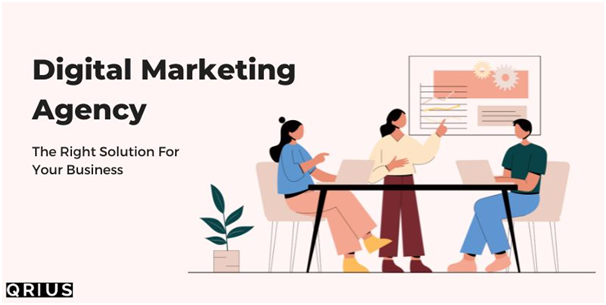Digital marketing is the practice of promoting products or services through electronic media, such as the internet and mobile devices. It encompasses a wide range of tactics and strategies, including search engine optimization (SEO), social media marketing, email marketing, content marketing, pay-per-click advertising (PPC), influencer marketing, referral marketing, and video marketing.
The goal of digital marketing is to reach potential customers where they are spending their time, which is increasingly online, and to engage with them in a meaningful way. Digital marketing enables businesses to target specific audiences and track the effectiveness of their campaigns in real-time, making it a cost-effective and data-driven approach to marketing.
Some of the key benefits of digital marketing include its ability to reach a global audience, its cost-effectiveness, and the ability to track and measure the success of a campaign. Additionally, digital marketing allows small businesses to compete with larger companies by levelling the playing field and giving them access to the same tools and strategies.
- Search Engine Optimization (SEO): SEO is the process of optimizing a website to rank higher in search engine results pages (SERPs) for specific keywords or phrases. This can be achieved by implementing on-page optimization techniques, such as including keywords in the website’s content, meta tags, and title tags, as well as off-page optimization techniques, such as building backlinks to the website from other reputable sites. The goal of SEO is to increase the visibility of a website and drive more traffic to it, which can ultimately lead to more conversions and sales.
- Social Media Marketing: Social media marketing involves using social media platforms, such as Facebook, Instagram, Twitter, and LinkedIn, to promote a business and its products or services. This can include creating and sharing content, running social media ads, and engaging with followers. Social media marketing allows businesses to reach a large audience, increase brand awareness, and drive sales.
- Email Marketing: Email marketing involves sending targeted and personalized emails to a customer base in order to increase engagement and drive repeat business. This can include sending newsletters, promotional emails, and transactional emails. Email marketing allows businesses to reach their customers directly and effectively, while also providing valuable insights into customer behavior.
- Content Marketing: Content marketing involves creating and sharing valuable and informative content, such as blog posts, infographics, and videos, in order to attract potential customers and establish a business as a thought leader in its industry. The goal of content marketing is to provide value to customers and build trust with them, which can ultimately lead to more conversions and sales.
- Pay-Per-Click Advertising (PPC): PPC advertising involves paying for ads that appear at the top of search engine results pages and on other websites. The ads are triggered by specific keywords and the advertiser only pays when a user clicks on the ad. PPC advertising can be an effective way to quickly drive targeted traffic to a website, but it requires budget.
- Influencer Marketing: Influencer marketing involves partnering with individuals who have a large following on social media platforms in order to expand a business’s reach and credibility with potential customers. This can include paying influencers to promote a product or service or working with them to create sponsored content.
- Referral Marketing: Referral marketing involves encouraging current customers to refer friends and family to a business in order to acquire new customers at a lower cost. This can include offering incentives or rewards for referrals, such as discounts or store credit.
- Video Marketing: Video marketing involves creating and sharing videos, such as product demos, tutorials, and customer testimonials, in order to increase engagement and drive traffic to a website. Video marketing can be an effective way to provide value to customers and build trust with them, which can ultimately lead to more conversions and sales.


